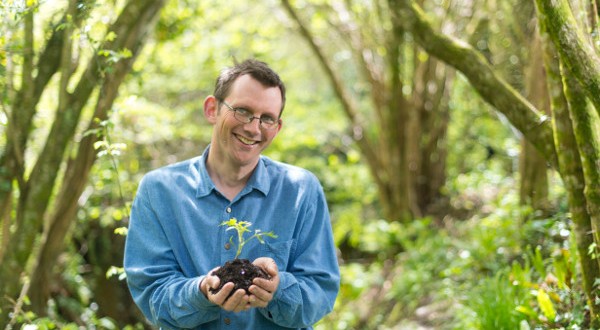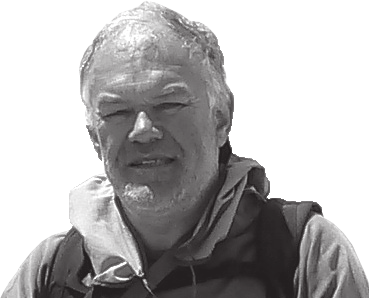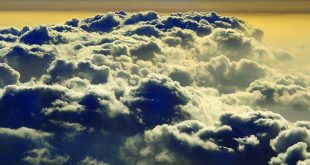… but all over the world, more and more people are asking themselves how humans could live their lives more sustainably. Ana Nunes and Carlos Abafa from Monchique are two of them. “Economy and ecology follow separate paths – it cannot continue like that in the future,” they say. Their question is based on a critique of the concept of the industrialised, throw-away society we currently live in, of life in a one-way street with endlessly growing mountains of rubbish, unrestricted exploitation of our planet’s natural resources, industrial intensive livestock farming, the monocultures of eucalyptus forests and dependence on fossil fuels…
Their increased awareness, combined with the search for an alternative blueprint for living more sustainably and its implementation in practice, brought the Transition movement to their attention. Against a backdrop of shorter supplies and increasing costs of fossil resources such as crude oil, gas, coal and wood, there is less ecological room for manoeuvre for human life in the more extreme weather conditions created by the Earth’s greenhouse effect (1). So, what is to be done?
Business as usual?
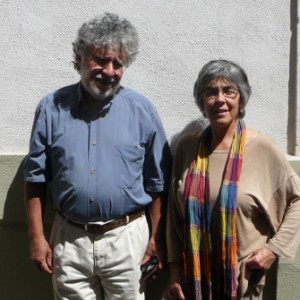
It is less than six years since the international financial system collapsed in September 2008, and less than three years since the European debt crisis of 2011. And what have we learnt from these events? That our growth-based economic system is tearing Planet Earth apart. “There is an alternative,“ says 46-year-old Rob Hopkins, doctor in empirical social research and co-founder of the Transition Town movement in an interview with ECO123. His ideas began to take shape in 2006 in the English town of Totnes (Devon) and they have meanwhile spread to more than 40 countries. What does the Transition movement stand for? Reduced to a formula, the concept of transition includes a multi-faceted programme that lowers energy consumption and dependence on industrial products and increases communities’ resilience (2). “We start in our village and in our town,“ Hopkins emphasises “and we must not wait any more until politics and economics finally act to pass the environmentally friendly laws that are needed, and apply them.“ Transition’s strategy is to strengthen existing, sustainable structures in a community and to leave structures that are not sustainable to collapse.
Ana Nunes and Carlos Abafa hand over a fertile piece of land in the middle of Monchique which belonged to their ancestors, with meadows, trees and arable land, to a group of mostly young people who would like to try out Transition and apply it in practice. They divided 2,000 square metres of land into ten lots which are used for organic agriculture in the form of permaculture. They meet once a month to share their experiences. (On the following pages, you can read more about the Transition movement in Portugal)
ECO123 asked Rob Hopkins (3) what the future holds for him and how much more unemployment there would be if the concept of Transition should catch on?
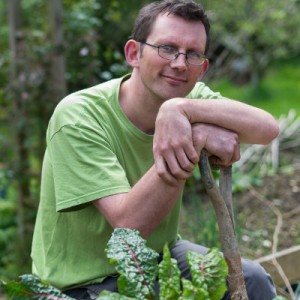
Rob Hopkins: Lots of jobs are being created at the local food sector, rather than saying how do we keep all the jobs that are currently in the car, and in the steel and in the mining industry. Actually we embrace the idea of a low carbon economy. Innumerous studies show that a huge number of jobs can be generated there. We can generate a lot of jobs through community renewable and roll out renewable on a big scale, rather than fracking gas. In the UK for example, there are a lot of jobs in energy efficiency, make our homes more energy efficient.
In your latest book, you describe how people in Portalegre are taking control of their own futures, without waiting for the politicians. You describe Portalegre in Transition as an honest group because it does without EU subsidies. If that becomes the accepted thing…
… money is not the most important resource. A lot of the transition groups are very good in mobilizing lots of people to come together and do things – and that is very useful for communities who are suffering of budget cuts. There are also quite a few transition groups in Portugal who are doing what we call “reconomy”. It is about looking on to your local economy in a different way. If your local economy is really struggling and there is not much work for people and you want to go forward and there is no money coming from the European Union nor from the government. Can we imagine that some businesses going to come in from outside and create jobs? Maybe it is better we look how we spend our money locally and do so (in a different way) it is more likely to create local jobs. We are looking about the economy of our community that’s being like a bucket with a lot of holes in. And we are looking aware where the leaks are and where is the money leaving the community? How can we make the economy more locally? That people can better look at themselves and the land around as a market garden, creating jobs, creating exercises to people in the hospital, creating healthier food for the people in the hospitals. You start to create good cycles like that. When we have less we need to make what we do have do more, before it leaves all our local economies.
So Transition means an about-turn away from industrial agriculture and intensive livestock farming and towards local and humane food security?
Peak Oil is not the end of oil but the end of the age of cheap oil. Industrial agriculture including transport is responsible for 40% of greenhouse gases and is based on cheap oil. If trucks stopped running, supermarkets would be empty within three days. We reached the point where the oil dependency is a key vulnerability. Renewables will sustain a transition society and a post carbon more localized lower energy society.
You are much in demand as a speaker. How often did you travel by plane last year to take part in conferences?
I have had one flight in the last eight years. I gave up flying eight years ago, but I travel all around Europe to talk about transition by train and I give many talks around the world using Skype and video conferences.
Do you think of yourself as being an optimistic person?
I would say that I am a cultural optimist. I believe that people in communities who have culture are being able to change society.
(2) Resilience (Latin resilire) or resistance describes the tolerance of a system to interference.
(3) Uwe Heitkamp conducted the interview with Rob Hopkins by telephone
 Eco123 Revista da Economia e Ecologia
Eco123 Revista da Economia e Ecologia

